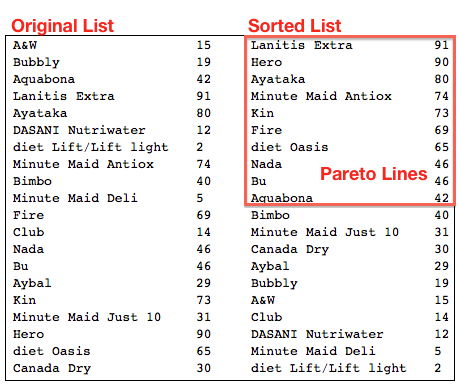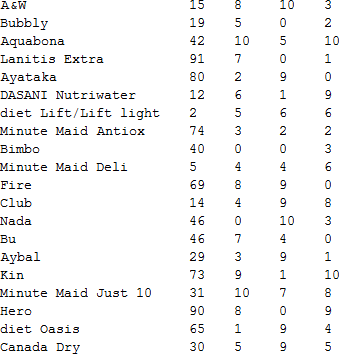How can I extract the Pareto elements from a list? For example, for that list:
list = {
{"A&W", 15}, {"Bubbly", 19}, {"Aquabona", 42},
{"Lanitis Extra", 91}, {"Ayataka", 80}, {"DASANI Nutriwater", 12},
{"diet Lift/Lift light", 2}, {"Minute Maid Antiox", 74},
{"Bimbo", 40}, {"Minute Maid Deli", 5}, {"Fire", 69}, {"Club",14},
{"Nada", 46}, {"Bu", 46}, {"Aybal", 29}, {"Kin",73},
{"Minute Maid Just 10", 31}, {"Hero", 90}, {"diet Oasis",65}, {"Canada Dry", 30}
}
I want to get this result:
{{"Lanitis Extra",91},{"Hero",90},{"Ayataka",80},{"Minute Maid Antiox",74},
{"Kin",73},{"Fire",69},{"diet Oasis",65},{"Nada",46},{"Bu",46},{"Aquabona",42}}

So that these products represent approximately 80% of the total value. The final list can be sorted or not and the real case has 15,000 elements. Make no difference for my purpose that is to tag these products as special ones.



